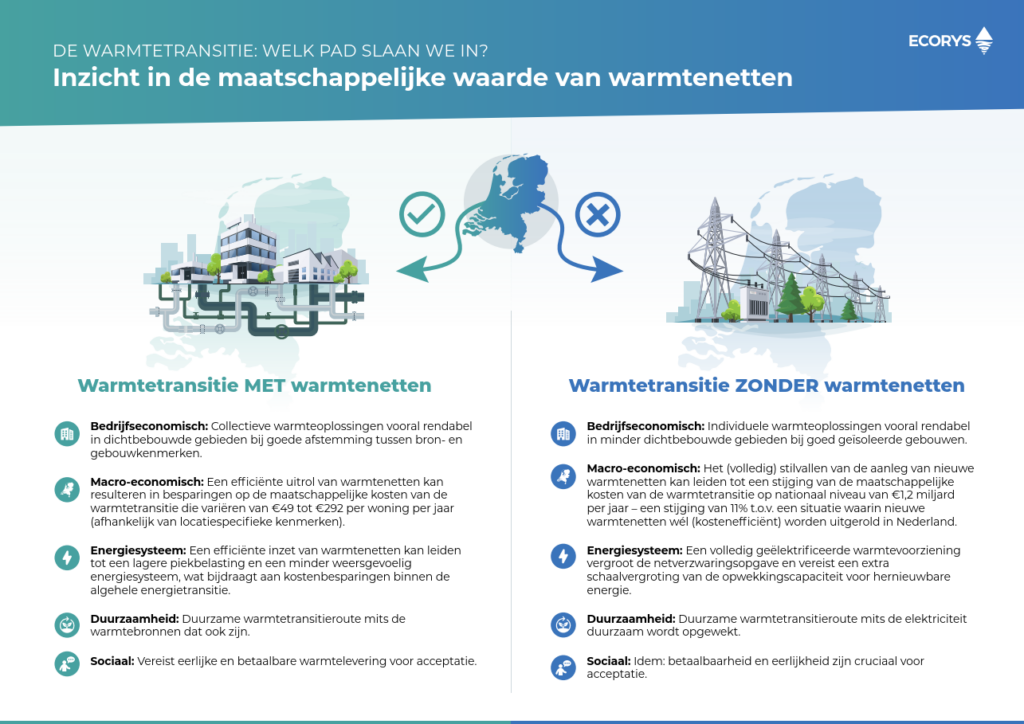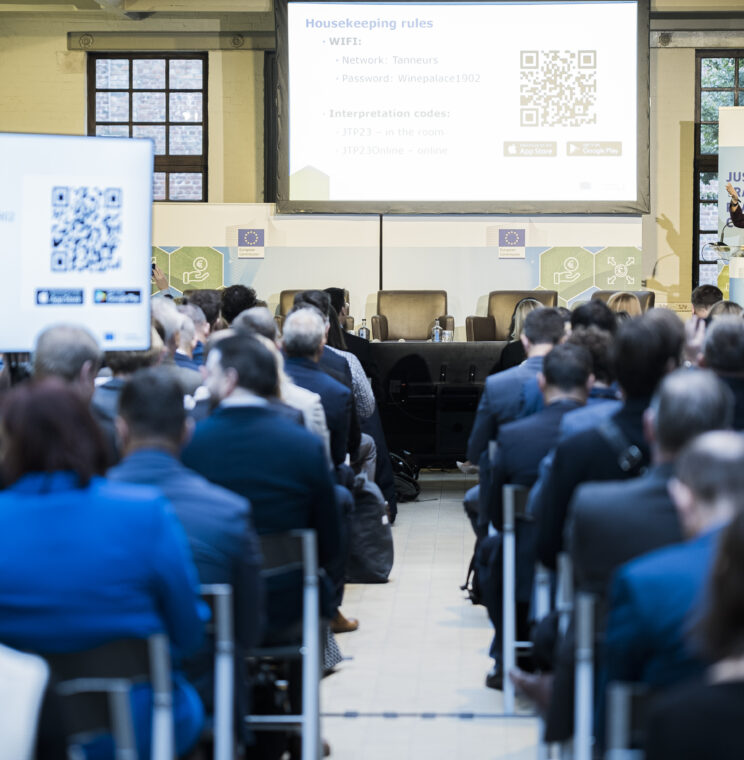The Social Value of Heating Networks
The main objective of this research is to assess the potential social value of heating networks. This insight aims to help policymakers better evaluate whether – and to what extent – it is worthwhile to address the current barriers and reinvigorate the development of heating networks.
Current Challenges
The rollout of heating networks in the Netherlands is currently at a virtual standstill. Several key factors contribute to this stagnation:
- Affordability issues: High costs make heating networks less attractive to end users.
- Suboptimal financing structures: These undermine the financial viability of projects.
- Reduced implementation capacity: Trust between market players and government has eroded, largely due to the difficult legislative process surrounding the proposed Collective Heating Act (Wcw).
This stagnation is not the result of a deliberate choice, but rather a consequence of these interrelated challenges. A renewed push is needed to break the impasse and move forward.
The Role of Meta-Analysis
Currently, insights on heating networks are scattered across numerous reports, making it difficult to gain a cohesive overview. This study brings those findings together through a meta-analysis, providing a more comprehensive and substantiated understanding of their added social value. This clarity is vital for assessing the need and urgency for further investment.
Key Findings
The analysis reveals that heating networks perform as well as, or better than, alternative solutions across five key areas of social impact:
- Economic contribution: When deployed efficiently and supported with adequate labour, materials, and suitable heat sources, heating networks enhance the economic case for the heat transition.
- Energy grid efficiency: They reduce the need for costly grid reinforcements, particularly when medium- to high-temperature heat sources are used.
- Sustainability: Depending on the heat source, heating networks can serve as a sustainable alternative to natural gas.
- Public acceptance: These systems are generally well-received, provided they remain affordable and are managed in a fair and transparent way.
Explore our infographic for a summary of the key findings from the meta-analysis:


12 May 2025
2 minute read
Sectors
Key Experts
Eva Colussi
Consultant
Joost Gubbels
Consultant
Kurt Kreulen
Consultant
Maurice Thijsen
Senior Consultant



